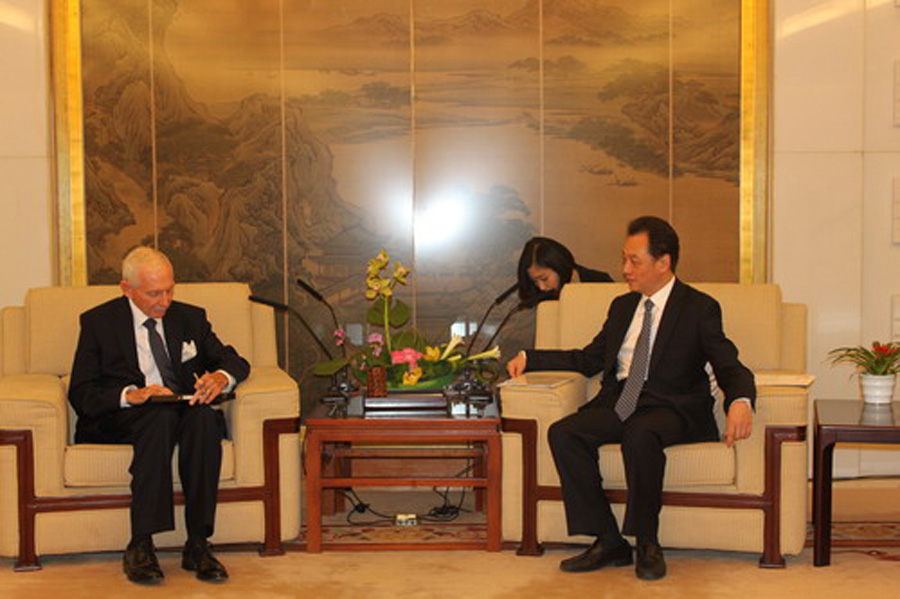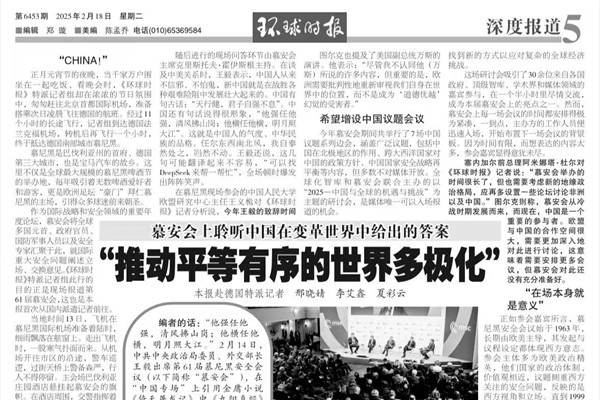【China Daily】Bigger migration role awaits nation
2016年6月16日
On June 13, 2016, Vice Foreign Minister Wang Chao met with visiting Director General of the International Organization for Migration (IOM) William Lacy Swing
Beijing’s membership application welcomed, called crucial by leader of international group
Membership by China in the International Organization for Migration will not only bring considerable changes to Beijing’s migration management and services, but also will help the country to participate in global governance, experts said.
The IOM welcomed China’s application for membership on June 13. Its director-general, William Lacy Swing, praised the move.
“China’s membership in IOM is crucial to growing the organization’s global significance,” Swing said after meeting with Vice-Foreign Minister Wang Chao.
During the meeting, Wang expressed China’s recognition of IOM’s role and contributions in managing migration worldwide.
According to the IOM’s website, Wang proposed three areas for future cooperation with the organization: capacity building and regional border management; disaster prevention and disaster management; and integration of migrants.
Foreign Ministry spokesman Lu Kang said Wang submitted China’s application for IOM membership, signed by Foreign Minister Wang Yi, to Swing on June 13 morning in Beijing.
“China is a populous country with large numbers of migrants,” Lu told reporters at a daily media briefing. “Once China joins the IOM, it will play a bigger role in international migration and will contribute Chinese wisdom to enhance international cooperation on migration.”
Wang Huiyao, president of the Center for China and Globalization (CCG) and the only Chinese on the Migration Advisory Board of the IOM, said China has not yet established a complete migration legal system or management process.
However, joining the IOM will help its collaboration with other countries when problems occur, he said.
“The international and domestic mobile population continues to rise in China, and this brings challenges to exit-entry control, residence service and registration management,” Wang said. “It also causes problems such as, how can migrants integrate themselves into urban life and participate in the city’s development?
“Our government needs to pay more attention to these problems and properly solve them,” he said.
Data from the IOM showed that there were 1 million Chinese migrant workers in temporary employment abroad in 2014, with more than 663,000 foreigners holding resident permits valid for more than six months in China.
Meanwhile, the National Bureau of Statistics estimated that nearly 269 million migrant workers have moved from rural areas to the growing cities in China.
“Joining the IOM will also facilitate China in exchanging experiences with other countries regarding migration management and expand Beijing’s participation in international organizations,” said Wang Huiyao. Chu Yin, an associate professor in the Public Administration Department at the University of International Relations in Beijing, said China’s participation in the IOM will improve its border management and labor migration policies and bring them in line with international practices.
“China has not only become a source, but also a transit point and destination for migrants from all over the world,” Chu said. “In response to an increasingly mobile population, China is taking actions to promote regular migration and prevent illegal migratory movements.”
“We have our own experience, but we also need to learn from international practices concerning migration management,” Chu added.
The IOM, founded in 1951 amid the chaos and displacement of post-World War II Western Europe, now has 162 member states, with nine others holding observer status. (By Wang Xu)
From China Daily,2016-6-15






